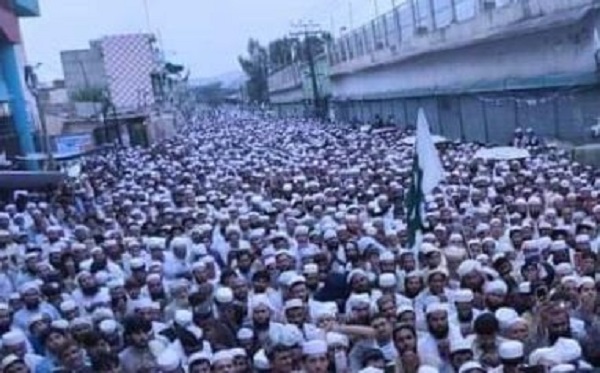Bannu (Pakistan), (Asian independent) Following protests by Islamists and religious leaders, who alleged a recreation park was “spreading obscenity and vulgarity”, authorities in the Pakistani city of Bannu have closed the area, media reports said.
The decision has triggered an uproar among women, who said the move is illegal and are calling on the authorities to fend off pressure from hard-line clerics, RFE/RL reported.
Observers said the move is part of a broader push by Islamists for Talibanisation, a term denoting growing Islamic fundamentalism in Muslim-majority Pakistan inspired by the Taliban’s extremist rule in neighbouring Afghanistan, the report said.
“This is an inhuman and unconstitutional act,” said Natasha Suman, a local activist and lawyer.
“No one can restrict our movement,” added Suman, noting that the Pakistani Constitution allows freedom of movement for all citizens.
Female activists said that only women, girls and young children entered the park, where boys over the age of 12 were not permitted. Activists also said that all female visitors observed the hijab or all-encompassing burqa, in line with conservative Islamic traditions, RFE/RL reported.
Authorities closed the park on August 23, two days after Islamic leaders and clerics held protests in the city. Thousands of demonstrators flooded the streets, paralysing parts of the city.
The protests came a week after photos emerged on social media of burqa-clad women lining outside the packed Jinnah Family Park to celebrate Independence Day on August 14, drawing the ire of the conservatives.
The Jinnah Family Park is located in an army cantonment, a part of the city that is administered by the military. The park was opened to the public several years ago, RFE/RL reported.
The move has appalled female politicians and activists.
“We don’t want to allow anyone to take away our rights by accusing women of spreading obscenity,” said Syeda Yasmin Safdar, a member of the Pakistan Peoples Party in Bannu.
Safdar said the park was a much-needed public space for women in the densely-populated city. The park is ringed by high concrete walls topped by barbed wire, hiding the female visitors from public view.
Sadfar said if clerics had concerns over intruders entering the premises or women at the park being visible to the public, then the authorities should have addressed those issues instead of closing off the area.
Ihtesham Afghan, a political activist in Bannu, said the campaign to close the women’s park is part of a concerted effort by Islamists to emulate the Taliban’s harsh policies in Afghanistan.
“Whatever happens in Afghanistan directly impacts Khyber Pakhtunkhwa,” said Afghan, referring to the northwestern Pakistani province that borders Afghanistan.
“We are afraid that Bannu is now in the crosshairs of Talibanisation.”








